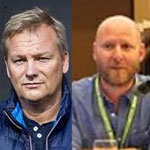26th June 2018 London, UK
UK interviewing and investigation techniques take a detour through Norway and go global

For the last decade, the Norwegian Police Service and the Norwegian Centre for Human Rights (NCHR) at the University of Oslo have cooperated on implementing methods of interviewing and investigations in law enforcement, military and intelligence services around the world. The methods originated in the UK and the ongoing projects involve close cooperation with British experts.
In the late 1980s, England and Wales introduced a new paradigm called Ethical Interviewing, now known as ‘investigative interviewing’. This marked a shift away from interrogation methods associated with coercion and intimidation. The aim of interrogation was to break down suspects, and force them to confirm the officer’s first and worst suspicion. Research on false confessions and wrongful convictions has identified confirmation bias as the primary cause of both. Briefly explained, confirmation bias – commonly known as tunnel vision – refers to our unconscious tendency to search for information that fits our preconceptions. Consequently, we exclude information that does not confirm what we believe to be true. Confirmation bias is the underlying cause of miscarriages of justice in almost every case.
Investigative interviewing reduces the risk of these fundamental human errors. Accordingly, interrogation techniques designed to make the suspect confess comes with great risks. With the introduction of investigative interviewing, officers were trained to handle the interview room much like a crime scene where accurate, reliable and actionable information can be collected for the purpose of investigating the case. This involves human rights compliance – fair trial standards in particular; communication skills; understanding human memory; measures to avoid the contamination of verbal evidence; and audio video recording to secure a complete record of the interview.
The Norwegian National Police University College officially committed itself to Investigative Interviewing around the turn of the millennium. The commitment acknowledged that confession-focused ‘tricks of the past’ no longer constituted best practice. A national training course was developed in close cooperation with scholars and colleagues from the UK, and was subsequently delivered to new recruits and detectives in all regions of Norway. Although experienced as both painful and dramatic, the general feedback from police officers was very positive. Today, 20 years later the Norwegian Police Service have advanced ethical interviewing into a holistic philosophy of how to think as a detective.
Inspired in part by Sherlock Holmes, leading scholars now recognise that the way to operationalise the burden of proof is by a systematic elimination of all other alternatives to guilt. This is the recipe for how to pass the legal threshold of beyond reasonable doubt. In addition to how suspects, victims and witnesses are treated, this is where modern investigation interfaces with human rights. Investigative interviewing reads like a checklist of “how to do” fair trial according to the International Convention on Civil and Political Rights (ICCPR) Article 14. This is particularly pertinent with regard to the right to be presumed innocent until proven guilty by court. The presumption of innocence is somewhat of a paradox. How do we presume our suspect to be innocent? The short answer is falsification. If you are curious about the method, the Convention against torture initiative (CTI) toolkit is a good introduction.
The Norwegian police service, the Norwegian ministry of foreign affairs and the Norwegian Centre for Human Rights (NCHR) cooperate on implementing investigative interviewing within law enforcement, military and intelligence in Vietnam, Indonesia, China, Thailand and Brazil. Investigative interviewing has proved invaluable as a practical approach to change because we know that nothing changes unless people know how to do their jobs differently. What started as an experiment in Vietnam has grown into global partnerships for universal standards for interviewing undertaken by law enforcement and security services.
In 2015, we advised the United Nations (UN) special rapporteur on torture, Juan Mendez’ on his final report to the UN General Assembly. In the report, Mendez advocates a universal protocol for non-coercive interviewing in accordance with investigative interviewing. In 2018, a coalition of UN agencies, NGOs, academics, law enforcement, military and intelligence experts joined forces and launched a global initiative for universal standards for non-coercive investigative interviewing. In all our efforts, we feel privileged to work closely with British friends and colleagues who selflessly provide invaluable expertise and advice.
The objectives we work with correspond with Norway’s white paper Opportunities for all – human rights in Norway’s foreign policy and development cooperation.We see the potential for enhanced transnational cooperation within intelligence, migration and criminal justice, which simultaneously advances the international rule of law and human rights agenda. Fair trial begins at the crime scene and in the interviewing room. Fair trial is essential to uphold the rule of law and hence a key aspect of popular sovereignty and democracy because it counters the arbitrary use of state power. At present, these central tenets of governance are under severe pressure globally. Today we look back with gratitude, and to the future with expectations for even stronger cooperation with the UK.

Wonerful Ivar to see your work getting the international recognition it deserves.
Thanks Geoff – I have learned from the best.